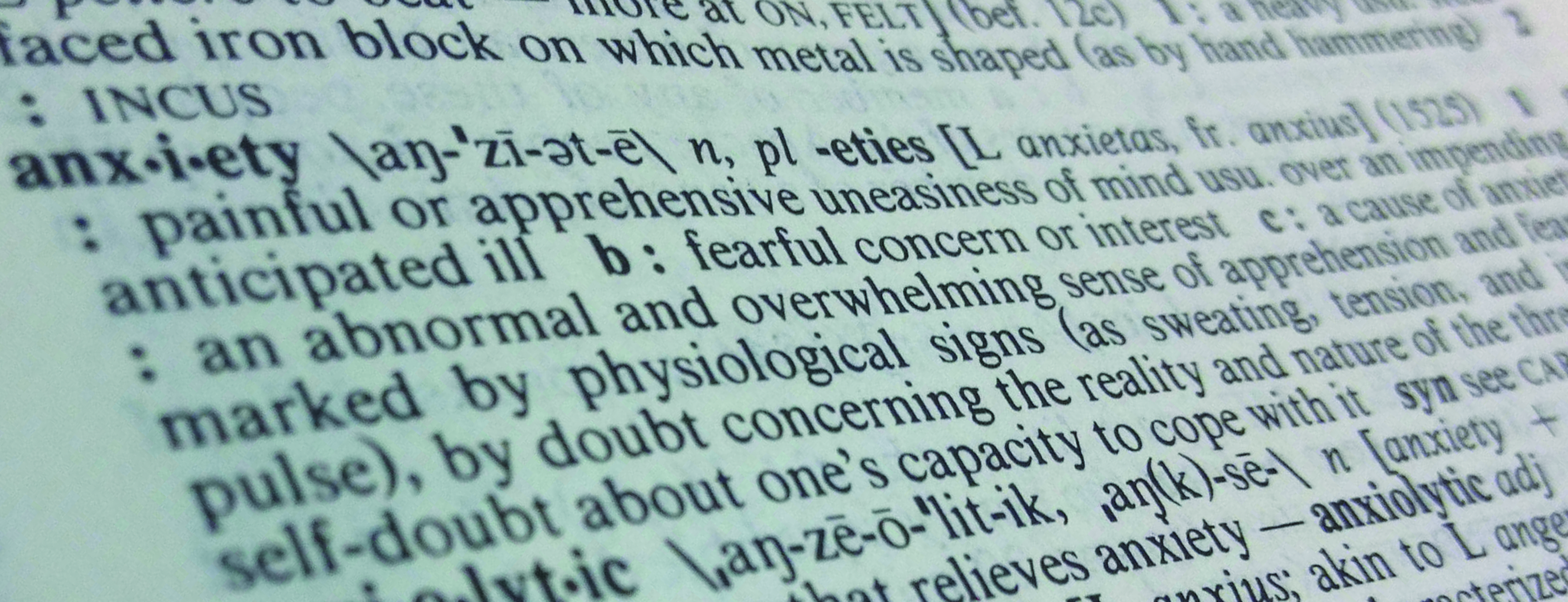By Jessica Clayton
Graphics Editor
“When it hits me, I feel like somebody is sitting on my chest. I can’t breathe and I start shaking, which causes me to get a fever. My body just shuts down and I just freak out. It takes over my mind and has me thinking that everything is not going to be okay; it’s not going to turn around,” said a senior who will be called Emily Jane, describing an anxiety attack.
Although minor anxiety may be experienced by everyone at some point in their lives, an anxiety disorder is different. It is classified by chronic nervousness and exaggerated distress over everyday things.
“Anxiety usually comes from the unknown—trying to figure out where to go from here, what my plans in life are going to be, how am I going to make it, what if I don’t get into the college I want, so your mind starts racing with a million different things,” guidance counselor Telisa Hunter said.
Jane has battled anxiety since the eighth grade. It has affected her life in more ways than one.
“On days that I am really anxious and nervous, I hold back and I can’t be myself. People notice it and think something is always wrong with me,” Jane said.
Anxiety is not only socially debilitating, but also impacts her health.
“If I have a panic attack, it’ll affect my immune system and my body and it’ll make me sick,” she said. “I’ve been to the hospital twice because I had a panic attack, I thought I couldn’t breathe and that I was going to die.”
Jane has no control over her anxiety. A trigger can be anything that will cause a panic attack to occur.
“If I have a [big] workload, it will trigger. If something reminds me of a time where I’ve had a panic attack in the past, I’ll relive it,” she said.
On top of altering her life at school, anxiety also impacts her personal life because some people do not know how anxiety can affect a person.
“It has caused arguments because not everybody understands what is going on in your mind and in your body,” Jane said. “They don’t really know how to react to it, so it causes a lot of arguments in conversation.”
Sleeping can also be a problem for Jane.
“[Anxiety] causes me to wake up in the middle of the night. When I’m sitting there going to bed and thinking about everything and stressing out, I get very anxious,” she said. “Then I can’t sleep the rest of the night because I feel like I’m not going to come out of it.”
Jane used to take a medication called Paxil, which is used to treat many things, including depression and anxiety, until last year.
“At first, I felt dependent on [the medication] and felt if I didn’t take it, I was going to freak out. Now that I’ve gotten older and I’ve had years of experience, I’ve realized that I don’t need the medication as much,” Jane said. “I started going to therapy which helped me learn how to fight it.”
Jane felt the medicine put restrictions on her personality.
“If you miss it one day, you will be nauseous and you feel gross. It makes you feel really quiet and it doesn’t allow you to be yourself,” she said.
Jane offers insight to other teens that may be experiencing anxiety.
“I would say everything’s going to be okay and to stay positive because there are other people who are going through the same thing.”
Anxiety is only one disorder that is common among teens. Depression is another crippling disorder that can also affect the daily lives of teens.
“It makes it hard to focus; feeling too upset to focus in school and to study, not wanting to do anything because of how down you feel,” said an anonymous senior.
When another student, senior Amanda Smith, which is not her real name, first started experiencing depression, she was not sure how to handle it, so she turned to her mom for advice.
“I randomly, out-of-the-blue started getting depressed and I said, ‘This isn’t right, what’s happening?’ And then I talked to my mom about it, and she helped me figure out that, ‘Oh, you have depression, but you can overcome this,’” Smith said.
Depression can be associated with self-harm and suicidal thoughts, which means one has the direct intent to cause injury to their body.
“Images of harming myself [go through my brain]. Like wanting to just end it, pistol through the brain, anything,” Smith said.
If gone unnoticed, this kind of behaviors could become progressively worse. According to the American Academy of Child and Adolescent Psychiatry, suicide is the third leading cause of death for 15-24 year olds.
“To me there is nothing more frightening than a student who has suicidal thoughts because you are so young and you have so much life ahead of you and it is only a one time moment in your life,” Hunter said. “There are ways to get through it, there are people out there to help, there are all kinds of options and resources for students who are feeling that way.”
When Smith thinks of self-harm, she thinks of her friends and tries to battle her destructive thoughts.
“I still think about [committing self harm], but then I think of my friends and how they don’t want me to harm myself, so I’m like, ‘I’ll do it for my friends,’” Smith said.
Smith finds it hard to talk to a therapist.
“I hardly trust new people, so I didn’t talk to [my therapist]; I just sat on the corner of the couch and just looked at her and tried to ignore her,” Smith said.
Since it was hard for Smith to turn to a therapist to deal with her problems, she turned to her friends for support.
“I went into this shell of sadness and my only happiness was when I was with some of my friends,” Smith said.
Depression can cause drastic mood changes and affect the lives of the teens who face it. It causes Smith to act differently at school and around her friends.
“It worries my friends, like my mood will be super hyper and then all of a sudden I’m not wanting to talk to anyone and I put my head down on the desk and just don’t want to be there right now,” Smith said.
Although talking to friends can be beneficial, Hunter recommends talking to an adult.
“We want to talk to our friends because they are our friends and we want to put those burdens on them, but you never know what your friends are also dealing with. Talking to an adult is different because they have been through situations that maybe you haven’t or your friends haven’t,” Hunter said.
Anxiety and depression are serious issues in teens that need to be dealt with as soon as symptoms occur.
“Some times things happen in our lives and we don’t know how to deal with them,” Hunter said. “We haven’t been given the tools or we’re not sure how to deal with them or we don’t want to come face to face with what is real compared to how we want things to be.”



